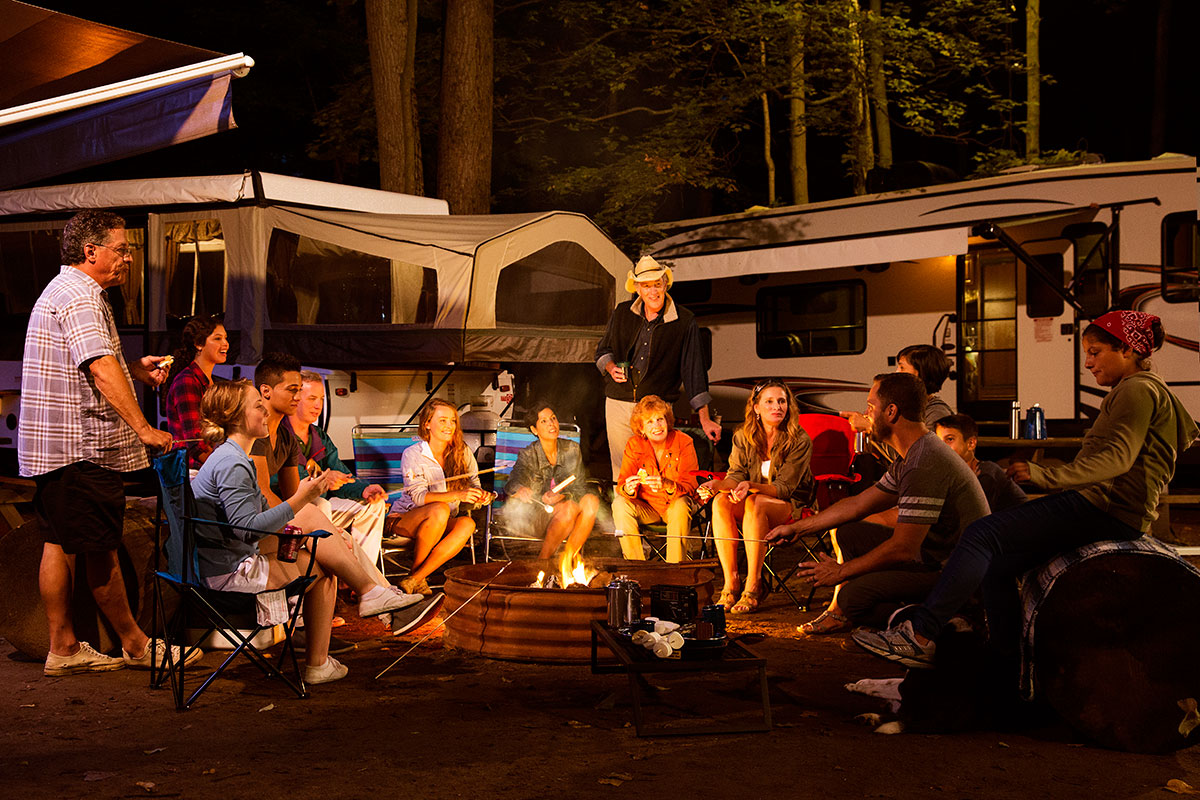There isn’t much better than camping with people you enjoy spending time with. RVing, whether you own or rent, gives you flexibility and a home away from home without ever really needing to unpack a suitcase. You may decide that instead of renting a house or staying in a hotel for your group vacation of RVing it instead. It’s adventurous and will help keep the cost of the vacation more reasonable.
How long does it take to organize a group vacation when multiple parties and RVs (or tents) are involved? It depends on who’s going. When it comes to RV camping with friends and family, it’s important to have your ducks in a row before you ever make a reservation.
Your planning steps should include:
- Designate a primary organizer. Choose someone to handle most of the heavy lifting, such as researching areas and campground, and making the reservations. It’s important to have someone specific to do this so that things get done. This person should be decisive, too, and know how to handle the personalities of the various parties involved. The organizer should be the lead travel planner, helping to guide the group when it comes time to make decisions.
- Decide on the best way to communicate. Technology makes it easier to connect, but it can also muddy up conversation if everyone isn’t on the same page. Texting, emailing, and phone calls all have their place in organizing a group vacation. Texting is great for needing to make quick or timely decisions. Emailing is great for passing along lengthy information or confirmations. Phone calls are perfect for speaking with each party in a more personal way.
- Choose when the big adventure will take place. Where do you want to go? Someplace new or someplace someone in the group recommends because it’s a family favorite? How many people will be coming? How many children are there? Are the children in school, and if so, is it okay for them to miss class? Is everyone in an RV or are there tent campers as well? How far is everyone willing to travel? How much is everyone expected to spend? Answer these questions as quickly as possible, which will help narrow down the geographical area going to enjoy your vacation – and at which campground.
- Decide how everyone is going to pay. A lot of times it’s easiest for one party to pay for everything up front and then be reimbursed by the other parties. This can help streamline the reservation process, too, so that the group stays together (one person can reserve multiple neighboring campsites). However, if everyone needs to pay their own way, make sure to closely coordinate how and when to make campsite reservations.
- Start now. It’s never too early to begin planning, especially if you’re interested in a popular destination like Michigan. State parks and many private campgrounds are open to reservations months in advance, or only so far in advance (read our other article). When it’s time to make the reservation, you want to be absolutely sure of your group’s plans… not scrambling to finalize details at the last minute. Some campgrounds fill up quickly and you need to be ready to choose your campsite and check out before someone else gets the spot you want!
Okay, now you have a place to go! After you make the reservation…
- Talk about when everyone is planning to arrive. Are all the sites in one name so that a particular party needs to get there first to check in? Are the sites already assigned to each individual party so that everyone can show up when it works best for them? Does the group want to meet up to do something prior to going to the campground to get the vacation started and enjoy the area?
- Decide how meals will work. To help spread around the cost of food for group meals, and so that everyone doesn’t have to bring everything, each party can be assigned a main meal(s) (lunch or dinner) over the course of the vacation days. Breakfast and snacks can be on your own.
 Decide on activities. Everything doesn’t have to be done as a group. Each party may have an idea of what they want to see or do. Everyone can bring something different to the table, inviting others to join in new experiences they may not have done or considered otherwise. That’s one of the advantages of having so many people along… lots of different interests. It may be difficult at first for everyone to not feel like they need to do everything together; but that eventually fades as groups begin to form and go off on their own. However, choose a select number of activities for the group to do together, activities that shouldn’t be missed depending on where you’re camping.
Decide on activities. Everything doesn’t have to be done as a group. Each party may have an idea of what they want to see or do. Everyone can bring something different to the table, inviting others to join in new experiences they may not have done or considered otherwise. That’s one of the advantages of having so many people along… lots of different interests. It may be difficult at first for everyone to not feel like they need to do everything together; but that eventually fades as groups begin to form and go off on their own. However, choose a select number of activities for the group to do together, activities that shouldn’t be missed depending on where you’re camping.

